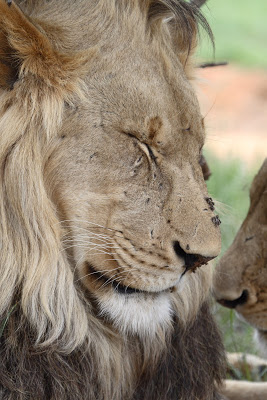 |
|
A few days after Jennifer and I start talking about writing about courage, her daughter (K.) and my own (B.) are seated at our kitchen table sharing snacks and huddled together over my daughter’s new iPod. I ask them, “Do you mind if I ask you a couple questions about courage?” We’ve had a few discussions about what courage means since I started researching its origins for this blog. I find I get more thoughtful, and willing, answers to my questions when I check in with my kids if it is a good time for them…and if they understand the meaning of my questions. I ask Jennifer’s daughter, the lovely K., first. “Do you think B. has courage?” K. answers emphatically, “Yes!”
I probe further, “Can you give me an example?” She continues, “Yeah…the time she volunteered at Tae Kwon Do to do her form in front of the whole class.” I ask K. if she thinks that she, too, has courage. “No,” is her response. B. immediately chimes in, “Yes, you do! You have so much courage. To come here from another country, when you were adopted, without knowing anyone or even the language!” K., ever the adoring friend, says “It’s the same as you, B. You came here from Canada.” B. challenges K. further to recognize her immense courage by saying, “K. when I moved here, I knew my family, I knew the language.” It’s as if, viewing oneself through the narrow prism of a friend’s achievements, we are unable to recognize our own strengths, our own accomplishments—especially when our friend is able to do things we are not yet unafraid to do.
Reflect on times in your life when you’ve shown courage. Share these stories with your kids over dinner together. Highlight courageous moments in your child’s life, too.
Decide if it is a value that is important to your family. Why? Notice, in the coming days, moments when you or your child display courage.
this is one of our most popular posts: please share it on Facebook or tweet it or repost to other social media
lion photo: Copyright Duard Van Der Westhuizen, Dreamstime.com


It is interesting that you chose the value of courage…it is not one that I think about very often. The only time I've had a conversation about courage with one of my children was when I had to talk her down from the fear of getting her ears pierced! 😉
To me, courage is the ability to overcome fear. Perhaps my kids don't come into situations of courage very often because my girls are ages 6, 4, and 2…and most of their challenges are around impulse control! Or perhaps I'm not providing enough adversity for my kids to exercise courage! I shall see where this leads us in the upcoming week.
Thanks for the Blog.
Kim B.
This is a very worthwhile question and one that needs to be discussed more.
When I brought this up with my son he defined courage as sky diving.I took this to mean, trying something even when one is afraid to do it. He agreed.
Having friends and family to support you when you have do do something difficult is one of life's greatest gifts.I hope I do this for my children, family and friends.I know I am lucky enough to have people in my life who do this for me… and my children are at the top of this list!
Great blog.I can't wait to see what's next!
Heather and Alexander
Thanks Kim and Heather & Alexander, for taking the time to question what courage means to each of you.Though I've spent much of the past several years researching human resiliency (the ability to "bounce back" from difficult life experiences or trauma), I was excited by the concept of writing about courage given the fact that everyday our children face small and big challenges or fears and may not necessarily have yet faced a life trauma. It takes courage to overcome a fear like getting your ears pierced, and step-by-step building of courage muscles to maybe even someday jump out of a plane.We were most drawn to courage as, like Sir Winston Churchill and Aristotle, we believe courage is the action mechanism required to put into practice all the other values we wish for our children to learn: kindness, generosity, love, etc.Given advances in psychology, particularly with the growth in cognitive neuroscience and the positive psychology movement, we therefore wished to focus on the empowering, positive, and hopeful perspective that courage offers.We believe that those that show the most resilience have likely had years of developing the kind of courage muscles needed to bounce back, even stronger in many cases, after the inevitable big stuff that life presents us all with at some stage or another.